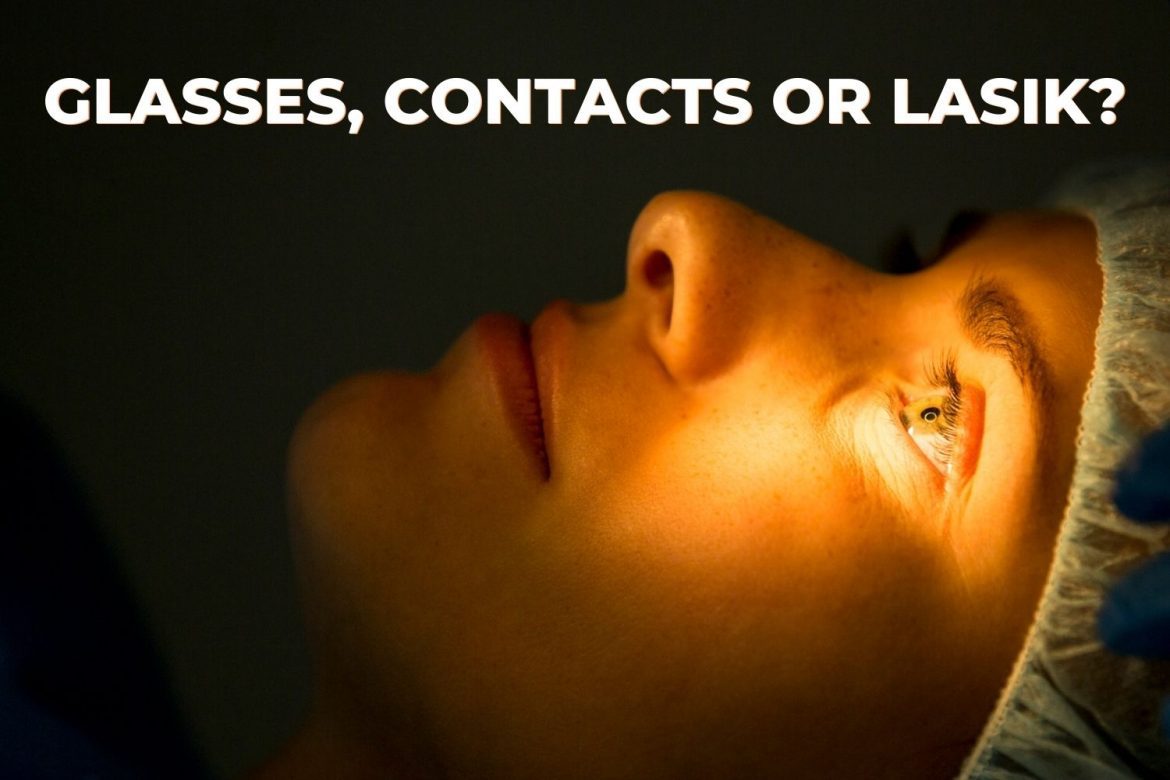1583 total views , 8 views today
Very few of us are blessed with 20/20 vision our entire life. In fact, according to the University of Iowa, only about 35% of adults have 20/20 vision without the support of glasses, contact lenses, or corrective eye surgery. If you’re amongst the majority, at some point you’ll need to decide how best to address your vision challenges.
Your options are straightforward: you can wear eyeglasses, contact lenses, eyeglasses and contact lenses, or opt for LASIK surgery. When it comes to vision correction, several important factors may influence the choice you make. Let’s take a look at what to consider when deciding on eyeglasses, contact lenses, or LASIK.
The cost of vision correction
All vision correction options come with costs, starting with a standard, annual eye exam. The average cost of an eye exam in the United States, without insurance, ranges from $95 to $200. If you are fortunate enough to have vision coverage, your exam might be covered in full or require a small co-pay.
Eyeglasses
According to VSP, a leading insurance provider, the average cost of glasses, including frames and lenses, is around $500 (which doesn’t include the cost of the exam or lens upgrades).
Contacts
Like eyeglasses, the cost of contact lenses depends on several factors, including the type of contacts you wear. For the average contact user who wears daily disposable lenses, the annual cost of contact lenses—not including the eye exam and contact lens fitting fee—ranges between $480 and $800.
LASIK
LASIK procedures have high upfront costs: typically around $2,200 per eye. However, you may be surprised to learn that over your lifespan, LASIK surgery could save you big bucks. You may spend between $13,000 to $20,000 less.
The convenience of vision correction
Cost is an important factor in vision correction, but comfort and convenience are too. While most people choose eyeglasses, each choice has pros and cons.
The pros and cons of eyeglasses
Glasses are convenient, easy to wear, extremely safe, and unless you break them, they require little maintenance. Glasses can also be stylish and serve as a fashion accessory or send a clear message about your personality. Of course, there are thousands of eyeglass frames to choose from including the massive selection offered by EZContacts.
In addition, glasses do more than just correct your vision; they also help to protect it. They provide a barrier between your eyes and anything that could come in contact with and/or damage them. Glasses also protect your eyes from glare and UV rays.
However, active people who engage in a lot of exercise often find eyeglasses are too cumbersome to wear. They struggle with the idea that they can’t be worn in the water, and often need to be removed while exercising. The same is true for competitive athletes. Unless you have eyeglasses designed specifically for participating in athletics, your glasses probably aren’t safe or appropriate.

The pros and cons of contact lenses
Contact lenses are a great option for people who engage in an active lifestyle, especially since they do not interfere with exercise. Also, contact lenses allow you to wear non-prescription safety glasses and sunglasses—something that’s nearly impossible with eyeglasses.
If you were to consider the cons of contacts, you’d first want to think about the increased risk of eye infections caused by viruses, bacteria, and fungi. After all, contact lenses require direct contact between the eye, the lens, and the your hands, which could be the cause of infections. Most contact lens don’t have serious problems, however, minor complications are fairly common.
WebMD published research on the topic here.
The pros and cons of LASIK
Most people opting for LASIK surgery will end up with 20/20 vision. Nearly half will have vision even better than 20/20 and no longer need glasses or contact lenses. It’s important to note the level of success achieved from LASIK is highly dependent on you being a good candidate for the procedure and the skill level of the surgeon performing the procedure.
The benefits associated with LASIK surgery include improved vision within 24 to 48 hours after surgery and freedom from wearing eyeglasses or contact lenses,
Despite these benefits, it’s important to point out LASIK is a surgical procedure, so it’s not without risks. According to the Eye Surgery Education Council, less than 1% of people undergoing a LASIK procedure experience any kind of vision problem. Most complications associated with the procedure are eye infections and dry eye.
What’s right for you?
As you now know, there are several important factors to consider when deciding the best course of action for your specific vision issue. Glasses, contact lenses and LASIK all have distinct benefits and drawbacks. It’s important to remember that while you can experiment and transition between glasses and contact lenses, you don’t have that option with LASIK.


